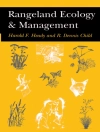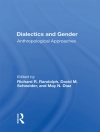The varying traditions in the migration research of different countries are closely connected to the respective national political landscape and the way in which the respective national state views itself – affirmative and positive or perhaps more self-critical. Seen side by side, much emerges to be discussed and challenged that was previously beyond doubt. The present volume introduces the reader to the traditions of migration research in twelve different countries: the more traditional immigration countries of Canada and Australia, four European countries with decades of experience (United Kingdom, Germany, Austria, Netherlands), countries newer to immigration such as Italy, Poland and Japan, and finally the postcolonial countries of India, Malaysia and Nigeria. Through this comparative approach this volume presents a new approach to understanding the different research traditions. The reader is confronted with the various ways in which emigrants are included or excluded from society, thereby gaining an understanding of the existing intellectual discourses as well as learning to qualify them in the light of other solutions and traditions. Because the approaches of the respective migration research tradition are not always the same, the volume is attractive for a number of professionals: Sociologists, political scientists, ethnologists, economists, and philosophers can join together to discuss the terms migration, integration, and their relationship to social structures. This in turn challenges premises that previously were held to be a matter of course.
Circa l’autore
Dr. Michael Bommes is Professor for Sociology/Methodology of Intercultural and Interdisciplinary Migration Research at the Institute for Migration Research and Intercultural Studies (IMIS) at University of Osnabrück, Germany.












